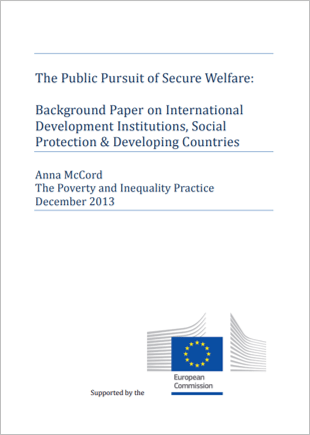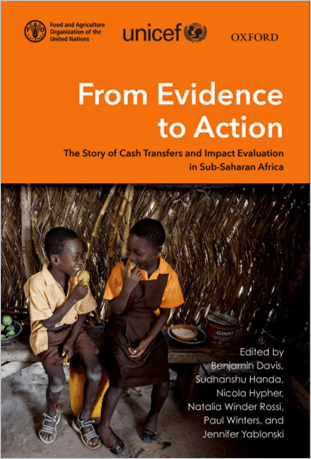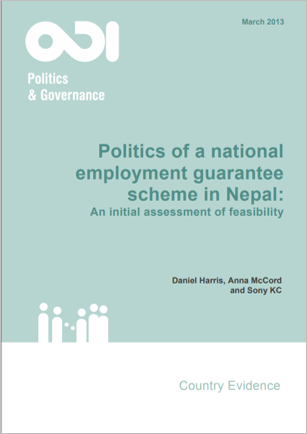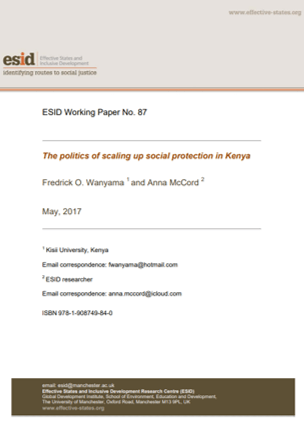Given social protection policy choices and design are highly dependent on the development paradigm in which they are located, and the fact social policy thinking in developing countries is in many instances heavily influenced by external ideological agendas, I have worked to explore these issues in several pieces of work over the last decade. I have attempted to highlight the political economy issues which underly the social protection discourse and make them explicit in a way that is accessible to social protection actors. I have worked from both the international perspective looking at the discourse promoted by major development agencies, and also at political economy issues at national level which are key in terms of sector development and the sustainability of donor supported initiatives, the latter in collaboration with IFAD, ODI and ESID at the University of Manchester, in collaboration with Professor Sam Hickey, and Professor Fredrick Wanyama.
The Public Pursuit of Secure Welfare commissioned by the European Commission – explores the way that historic ideological differences and institutional competition, most notably, but not exclusively, between the ILO and World Bank, have influenced the development of the sector over recent decades.
The Political Economy of Cash Transfers, research commissioned by UNICEF and carried out in collaboration with Jen Yablonski and Natalia Winder Rossi explores the issues at a country level, considering the extent to which evaluation can inform policy development, as does the work completed for IFAD which explores the impact of development actors on policy development, from a recipient government perspective.




